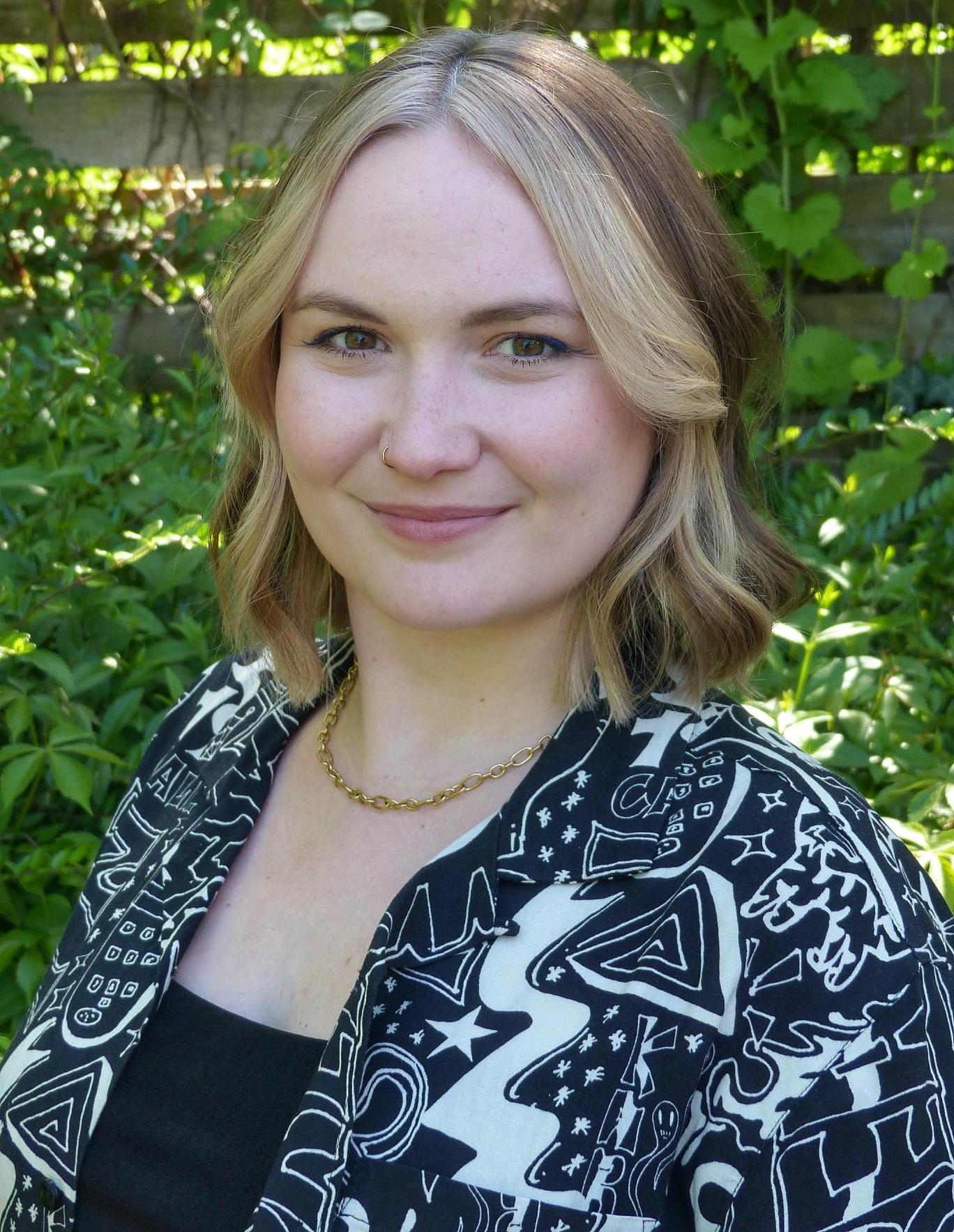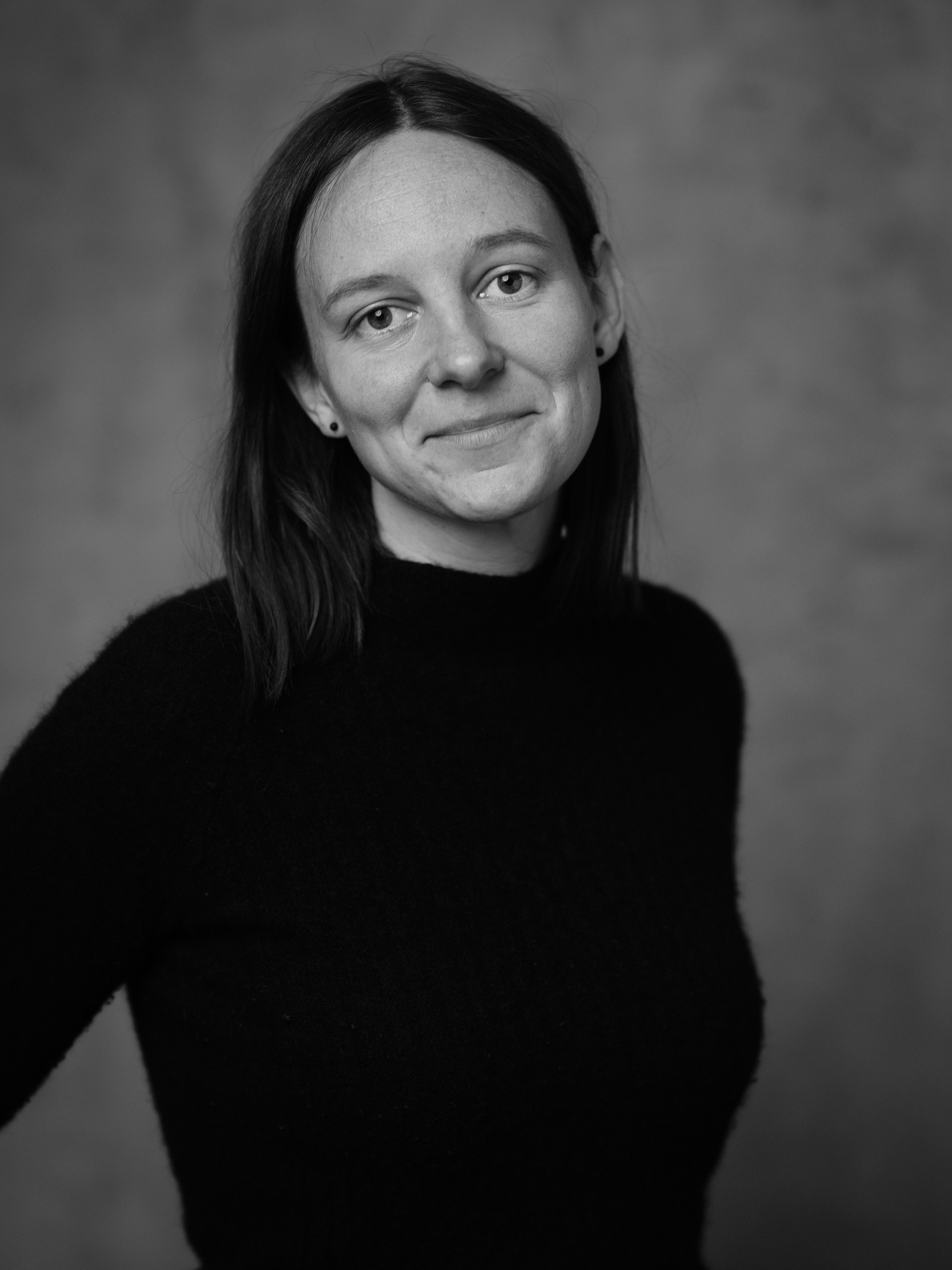PhD-Scholars
- Nihan DuranHide
-

Nihan Duran
Research Interests: Gender Studies, (Forced) Migration Studies, Intersectionality, Labour Market and Social Policies
Current Project: Chances, Choices and Strategies of Refugee Women in the Labour Market in Germany: An Intersectional Approach
Nihan Duran is awarded the Diploma of the International Baccalaureate (IB), at the American Collegiate Institute, Izmir. She holds a dual bachelor's degree in International Relations (Anadolu University), and American Culture and Literature, along with a minor degree in German Translation and Interpretation (Ege University). She received her M.A. degree in the International Relations departement at Istanbul Bilgi University with her thesis, Living in 'the State of Exception:' Experiences of Syrian Refugees in Berlin (2019). She has also visited Sciences Po, Paris School of International Affairs (PSIA) as an exchange student. Her research article titled "Dual Discrimination of Syrian Refugee Women in the Labour Markets in Europe and Turkey: Identifying the Challenges" wins the prize at the competition organized by the Jean Monnet Chair at the European Institute of Istanbul Bilgi University and is published by the Journal of Social Policy Conferences in December 2018. She currently works on her doctoral research project as scholar of the Hans-Böckler-Stiftung at the Doctoral College on Intersectionality.
- Jasmin GoldhausenHide
-

Jasmin Goldhausen
Research Interests: Post- und dekoloniale Studien, Intersektionalität, Gender und Queer Studies, Transformative Bildung, kritische Wissenschafts- und Hochschulforschung, epistemische Ungerechtigkeit, akademischer Aktivismus, Soziale Ungleichheit und Prekarität in der Wissenschaft, qualitative Sozialforschung.
Current Project: Universitäten „von innen“ dekolonialisieren? Aktivistische Nachwuchswissenschaftler*innen im Spannungsfeld intersektionaler Ungleichheiten, (un-)sichtbarer Arbeit und kolonialer Kontinuitäten
In meinem Promotionsprojekt untersuche ich aus einer dekolonialen und intersektionalen Perspektive strukturelle Machtasymmetrien im akademischen Feld und inwiefern diese unterschiedliche Formen von akademisch-aktivistischer Arbeit prägen. Im Zentrum stehen dabei die Erfahrungen von „Nachwuchswissenschaftler*innen“, die sich innerhalb prekärer akademischer Arbeitsbedingungen für eine sozial gerechtere Transformation bzw. „Dekolonisierung“ von Wissenschaft und Gesellschaft einsetzen. Welche konkreten Strategien sie im Umgang mit Widersprüchen und (kolonialen) Machtstrukturen im (deutschen) universitären Kontext entwickeln und welche Rolle dabei intersektionale Ungleichheiten spielen, soll u.a. mit problemzentrierten Interviews und Workshopformaten erarbeitet und analysiert werden. Ein besonderer Fokus liegt hierbei auf emotionaler und sozialer Care-Arbeit als Formen „(extra-)akademischer Arbeit“ (Gillies und Lucey 2007) sowie auf kollektiven Ansätzen. Ziel der Arbeit ist es Grenzen und Möglichkeiten für konkrete politische Interventionen sowie alltägliche widerständige Denk- und Handlungsstrategien innerhalb der Universität zu sammeln und gemeinsam weiterzuentwickeln.
Further Information: Academic CV
- Guelten Gizem FesliHide
-
Guelten Gizem Fesli
Research Interests: Industrial Relations; Comparative Employment Relations; Labor Unions, Social Policy; Work and Transnational Migration; Intersectionality; Qualitative Research.
Geographical Area: Germany and USA
Current Project: Labor Union Organizing Strategies of Transnational Care Workers in Germany and the USA
Gülten Gizem Fesli (she/her) is a PhD candidate who studied at the University of Erlangen-Nuremberg (FAU) and San Diego State University (SDSU). She holds a Bachelor’s degree in Teaching (English, Political Science, Pedagogy), and a Master’s degree in Sociology from FAU.
Advised by Prof. Dr. Ingrid Artus in her current PhD project, she takes a migrant-centered approach to examine strategies employed by trade unions in organizing transnational domestic care workers in Germany and the USA, spanning from the late 20th century to the present. Through expert and narrative interviews with trade unionists, transnational domestic care workers, and civil society actors, she pays specific attention to power resources as well as well as race, class, and gender using intersectionality as a conceptual framework. The objective is to explore and compare the unionization of transnational care workers in both welfare states, and to draw conclusions from successful American organizing strategies for an intersectional approach to organizing migrant care workers in Germany.
She was awarded an Exposé stipend for academic excellence by the Hans-Böckler-Foundation, that is currently fully funding the research project. Additionally, the PhD fellow is chair of the Trade Union Education and Science (GEW) Nuremberg.Further Information: Academic CV
- Louisa KamrathHide
-
Louisa Kamrath
Research Interests: Intersectionality, Gender Studies, Queer Theory, Material Feminism, Class Discrimination, Embodied Cognition, Social Theory, Social Justice
Current Project: Berlin childhood around two thousand. Conceptionalizing a theory of intersectional embodiment from the narratives of Berlin mothers in precarity.
My doctoral project is intended to provide a framework for the idea of an embodied narrative within an empirically supported theoretical work. In doing so, the research perspectives of narrativity and embodied cognition will be combined to form a theory of embodied narrative. The guiding question asks for conditions and limitations of agency within intersectional possibilities.
On the basis of episodic interviews with mothers in Berlin who organize their lifes under precarious conditions in work and care, the intersectional determinism in thought and action is to be thematised. In equal measure the subversive potential of intersectional knowledge is to be made visible. The aim of the work is to expand the discourse on intersectionality and social inequality including the concept of cognitive embodiment.Further Information: Academic CV
- Ruth MartiniHide
-

Ruth Martini
Research Interests: Intersectionality, collective organizing, sexuality, sex work, discrimination.
Current Project: Sex workers in trade unions and professional associations. An intersectional multilevel analysis.
This research project examines the social positioning of politically active sex workers in the context of complex social relations of domination and the significance of their political activism in terms of an expanded capacity to act. The aim is to determine to what extent collective organizing can contribute to overcoming intersectional relations of domination and improving the living conditions of sex workers.
- Davide TorrenteHide
-

Davide Torrente
Research Interests: Bildung und Subjektivation in der Migrationsgesellschaft; Kritische (Flucht-)Migrations- und Rassismusforschung; Geschichte, Theorie und Praxis von Intersektionalität; Intersektionale Männlich*keitsforschung; Intersektionale Sozialraumforschung; Intersektional-Feministische Standpunkttheorien und Epistemologien; Transgenerationalität und Childismus; Rassismuskritische Psychoanalytische Pädagogik; Multidirektionale Erinnerung und plurales Gedenken; Pädagogik im Spannungsverhältnis von Postkolonialität und Post-Shoah.
Current Project: Surviving Space. Pädagogische Annäherungen an Bildung und Subjektivation von Jungen* und Männern* mit intersektionalen Rassismuserfahrungen in Sozialräumen der Migrationsgesellschaft.
Davide Torrente (er/ihm) ist Pädagoge sowie Bildungs- und Sozialwissenschaftler und hat in unterschiedlichen Projekten zur Intersektionalität von Bildungsprozessen an den Schnittstellen von Rassismen, Migration, Klassismus und Sexismus geforscht. Im Fokus seiner Arbeit stehen die wechselseitige Verwobenheit von Subjekt und Gesellschaft unter (post)migrantischen und (post)kolonialen Bedingungen sowie die Möglichkeiten einer emanzipativen, widerständigen und selbstermächtigenden Irritation hegemonialer Machtstrukturen als Gelingensbedingung von Bildung und als Ressource marginalisierter Bildungssubjekte. Besondere Bedeutung hat für ihn die Arbeit an Räumen und Strukturen der Wertschätzung postmigrantischer und anti- sowie dekolonialer Wissensproduktion in unterschiedlichen Bereichen von Wissenschaft und Kulturarbeit. Sein Promotionsvorhaben ist seit Februar 2023 von der Hans-Böckler-Stiftung gefördert.
Further Information: Academic CV
- Puja Kaur MattaHide
-

Puja Kaur Matta
Research Interest: Intersectionality Studies; Nation-Making and Colonialism; Religious Studies; Forced Migration; Diaspora Studies; Afghanistan; Afghan Sikhs and Hindus.
Current Project: Religious Freedom and Religious Oppression - a case study of Afghan Sikhs and Hindus in Afghanistan and Germany.
Puja Kaur is a PhD candidate in Religious Studies at the University of Bayreuth. Their academic background spans Anthropology (with a focus on African Studies) and American Studies from the University of Mainz, and a Master’s degree in Geography with a regional focus on South Asia from the University of Heidelberg.
Trained as an ethnographer, Puja Kaur takes a transdisciplinary and intersectional approach to research. Their current project focuses on Afghan Sikh and Hindu communities who have experienced religious discrimination in Afghanistan and continue to navigate questions of belonging, memory, and identity in the diaspora, particularly in Germany. The research explores how religious practices, displacement, and embodied memory shape everyday life and communal continuity across borders.
Grounded in long-term fieldwork, they work across linguistic and cultural contexts, engaging with local languages and narratives. Their methodological approach is informed by feminist and decolonial thought, with a focus on centering perspectives often marginalized in academic discourse.

